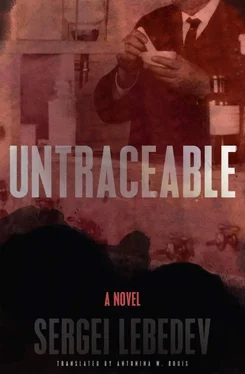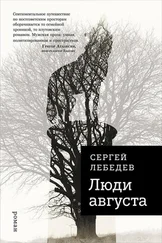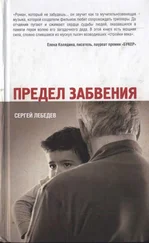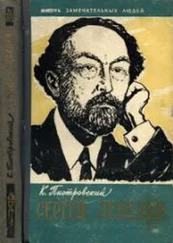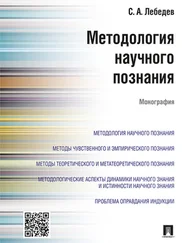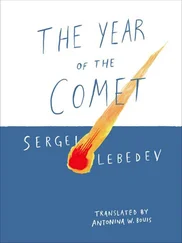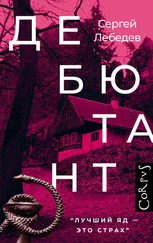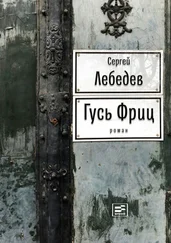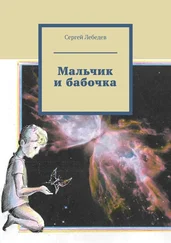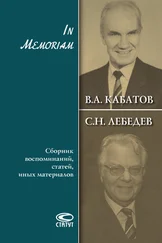Сергей Лебедев - Untraceable
Здесь есть возможность читать онлайн «Сергей Лебедев - Untraceable» весь текст электронной книги совершенно бесплатно (целиком полную версию без сокращений). В некоторых случаях можно слушать аудио, скачать через торрент в формате fb2 и присутствует краткое содержание. Город: New York, Год выпуска: 2021, ISBN: 2021, Издательство: New Vessel Press, Жанр: Современная проза, на английском языке. Описание произведения, (предисловие) а так же отзывы посетителей доступны на портале библиотеки ЛибКат.
- Название:Untraceable
- Автор:
- Издательство:New Vessel Press
- Жанр:
- Год:2021
- Город:New York
- ISBN:978-1-939931-90-0
- Рейтинг книги:3 / 5. Голосов: 1
-
Избранное:Добавить в избранное
- Отзывы:
-
Ваша оценка:
- 60
- 1
- 2
- 3
- 4
- 5
Untraceable: краткое содержание, описание и аннотация
Предлагаем к чтению аннотацию, описание, краткое содержание или предисловие (зависит от того, что написал сам автор книги «Untraceable»). Если вы не нашли необходимую информацию о книге — напишите в комментариях, мы постараемся отыскать её.
Untraceable — читать онлайн бесплатно полную книгу (весь текст) целиком
Ниже представлен текст книги, разбитый по страницам. Система сохранения места последней прочитанной страницы, позволяет с удобством читать онлайн бесплатно книгу «Untraceable», без необходимости каждый раз заново искать на чём Вы остановились. Поставьте закладку, и сможете в любой момент перейти на страницу, на которой закончили чтение.
Интервал:
Закладка:
Shershnev liked being in the sky, in a plane. His thoughts were especially clear in flight. Naturally, the lieutenant colonel could not bring along even a line of documentation about the subject. He was a completely different person now, the businessman Ivanov, traveling with his friend to drink beer and eat sausages, pick up pretty girls, buy gifts. But Shershnev had memorized the most important things, and now he intended to think things through and pull it all together. He didn’t have to do it, analysis was not required of him. However, the subject was no longer an abstract, theoretical target, as he should have been, but a phantom, a shadow looming in the distance. He had taken on a strange, illusory freedom of behavior, and Shershnev wanted to subordinate him again, reassert his own power over him, the power that Shershnev had had over the doomed field commander.
But his mind wandered, as if the subject tried to defend himself from being understood and enslaved, tried to slip away. Then Shershnev started thinking about another person capable—that was the operative system in finding approaches to the subject—of leading him to the right conclusions.
Igor Yuryevich Zakharyevsky. He died as an academician, lieutenant general in the medical service. Laureate and so on. Zakharyevsky was too significant to be hidden entirely, so he had a public, overt identity.
An academician. Distant relative. Luminary.
Naturally his emblem, the bowl and snake, was a cover. He didn’t do medicine. What he did do Shershnev was not supposed to know. But no one could stop him from guessing.
Zakharyevsky. He remembered that name.
When Shershnev began working, there was almost no one left in the ranks with prewar experience. Those who had served during the period of “violations of socialist legality,” as they called it in the political training classes. The father of one of Shershnev’s colleagues was a retired colonel, in scientific counterintelligence.
Winter. Yes, winter. A departmental house of light brick in the middle of Moscow. A birthday party. Cognac sent for the guest of honor from somewhere in the Caucasus; his old colleagues supplied the gift. Smoking breaks in the kitchen. Their youthful drunken argument about what “one of us” meant and can you recognize a future traitor by intuition, by sixth sense.
The retired officer listened in silence. Then he chopped his hand through the air, as if chopping off someone’s head. With unexpected force, seemingly trying to convince himself as well as them, he told them about Zakharyevsky. Zakharyevsky’s cousin, also a scientist and specialist in cattle breeding, had been accused of falsifying results of experiments in order to sabotage the upturn in agriculture. He was executed on the sentence handed down by a troika, a military tribunal, in 1937. And rehabilitated in 1959.
“Zakharyevsky, however,” he said firmly, albeit with a heavy asthmatic wheeze, “became an academician. Even though he could have nursed a deep anger against the Soviet regime because of his cousin. But he understood that a mistake had been made. The Party trusted him. And he merited that trust. One of us,” the former counterintelligence agent summarized, stretching out the word “us,” to confirm his commonality with Zakharyevsky and declare publicly the state’s and service’s claim upon the academician, in which he played a small personal part.
Now things came together for Shershnev. Zakharyevsky. So he must have used his position to help his cousin’s relatives get work in a closed city. Work they should not have been given: it didn’t matter that the executed zoologist had been rehabilitated later, children of enemies were trusted very selectively. Thanks to Zakharyevsky, they cunningly gained access to the storehouse of secrets, where everything was special, even the police and prosecutors. No surprise that the subject had become his student and successor.
At the briefing they told Shershnev there was a great probability that the subject wanted to return to the homeland. He was unconsciously waiting to be punished and was unlikely to resist. On the contrary, he would accept vengeance as his due.
But his guess about Zakharyevsky’s cunning, having accepted the loss of his cousin—and had he?—while managing to obtain cover for relatives, told Shershnev: no. The subject would not surrender just like that. He would try to save himself—at any cost.
Strangely, that pleased Shershnev.
CHAPTER 9
Kalitin shut the door behind him, turned on the entry light, and glanced around at the corners. He had lived alone for too long, he had almost no interaction with others, and he was interested solely in himself. Deprived of research, of real work, he scrupulously observed his own habits, registered the preferences or antipathies that explained them, mere stubs, wax casts of the bigger emotions that had once ruled him.
Even now, as he brought into his house the terrible news of the disease that would relentlessly destroy his daily rituals, acquired over years, take him away from his desk, chair, and book shelves, whose existence would outlast his and were no longer absolutely in his possession—Kalitin had to check the corners: Were there any rats?
As a child, he was not afraid of animals that usually scare children, dogs for example; the closed city was too new, it arose in the idyll of the woods, people moved there hurriedly without knowing what to expect and left their pets with relatives. There were no stray dogs, because there was nowhere from which they might come.
As an adolescent, he did not seek pleasure in torturing creatures. Later, during his studies and work, he treated animals indifferently. An entire host of them, thousands of mice, hundreds of dogs, rabbits, monkeys, dozens of horses, goats, and sheep died in torment—but that had been necessary, they served a greater good. If he could have managed without test subjects, he would not have used them. But nature did not want to give up its secrets without force, without sacrificial death, without dull foam in the mouth.
When tests were performed on dummies, he did not see the process and only read the results. Age. Weight. Disease. Reaction to the substance. The dummies excited him intensely—he wanted to delve deeper into the mystery of human death. Kalitin saw that there were no two identical deaths. Similar complexion, identical age, but the final moments passed in different ways, the symptoms of the final agony were expressed in different ways. Physiology? Psychology? Character? Fate? He did not perceive the test dummies as people. They were an infinitely complex collection of parameters, animated brainteasers. He did not need explanations that these were state criminals sentenced to death, corpses in waiting. Those legalistic details stayed outside the testing chamber. Inside, there was only the body and the substance in it, injected by the lab technician skilled at assuaging any sense of deceit, pretending to be a kindly doctor.
Of all living creatures that had been in his power, populating the laboratory ark, Kalitin prioritized only the rats.
On the Island, in the ancient monastery building, they had hundreds of artificially bred rats, identical, docile fools. But from somewhere in the monastery cellars, deep down in the limestone, abandoned, sealed off, in the auxiliary and working rooms of the laboratory, which only the most select, tested, and retested personnel could enter, real, feral rats came and went unhindered.
The first to be defeated were the construction laborers, armed with cement, plaster, iron, brick, and ground glass. There were only a few with the level of security clearance required to work in the lab. They worked assiduously to fill and seal all the holes they found. But the rats kept coming from somewhere, devouring sandwiches left in briefcases, ruining paper and cardboard. The old-timers said you couldn’t get rid of the rats because they swam over from the numerous grain barges that traveled the river. But the rats continued their outrageous behavior in the winter, when the river iced over and the barges had to wait in backwaters.
Читать дальшеИнтервал:
Закладка:
Похожие книги на «Untraceable»
Представляем Вашему вниманию похожие книги на «Untraceable» списком для выбора. Мы отобрали схожую по названию и смыслу литературу в надежде предоставить читателям больше вариантов отыскать новые, интересные, ещё непрочитанные произведения.
Обсуждение, отзывы о книге «Untraceable» и просто собственные мнения читателей. Оставьте ваши комментарии, напишите, что Вы думаете о произведении, его смысле или главных героях. Укажите что конкретно понравилось, а что нет, и почему Вы так считаете.
